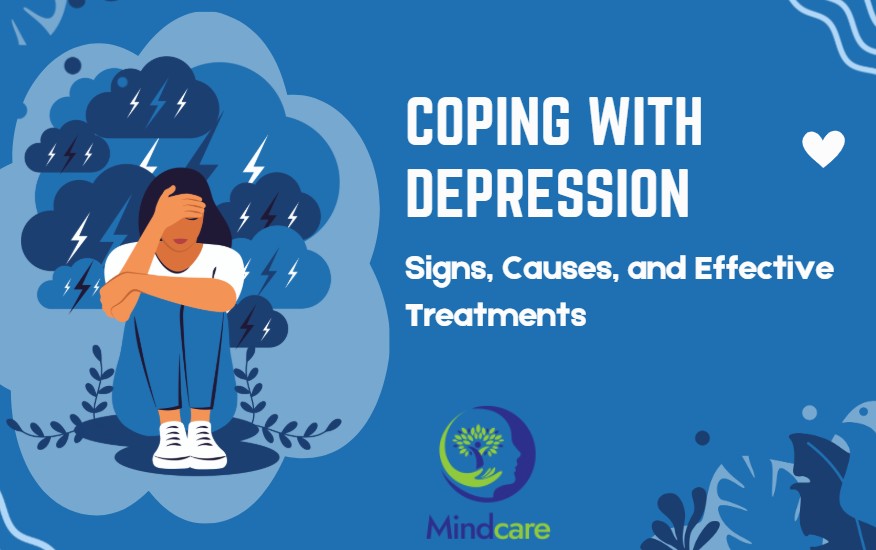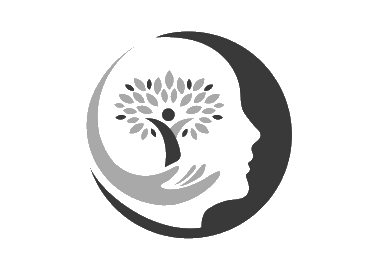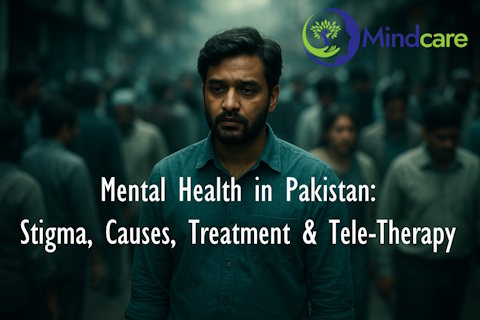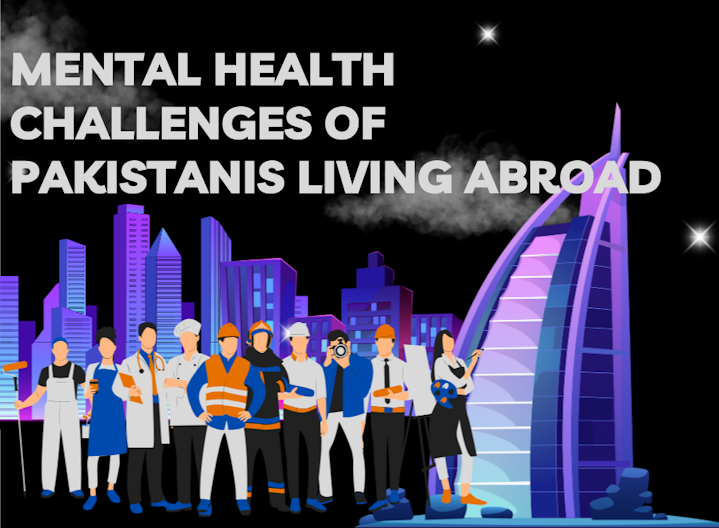Coping with Depression: Signs, Causes, and Effective Treatments
What is depression?
Depression is more than occasional sadness — it’s a medical and emotional condition that affects how you think, feel, and function. According to the World Health Organization (WHO), depression is a leading cause of disability worldwide. Recognising symptoms early makes it easier to get effective help and improve outcomes.
Common signs of depression
Depression can present differently in everyone, but common symptoms include:
- Persistent low mood: Feeling sad, empty, or hopeless most days.
- Loss of interest: No longer enjoying activities you once liked.
- Changes in sleep: Insomnia or sleeping too much.
- Low energy: Fatigue and slowed movements or thoughts.
- Appetite and weight changes: Eating more or less than usual.
- Difficulty concentrating: Trouble focusing, making decisions, or remembering.
- Physical aches: Headaches, stomach problems, or unexplained pains.
- Thoughts of self-harm: In severe cases, suicidal thoughts may occur — seek immediate help if this happens.
What causes depression?
There is no single cause. Depression usually results from a combination of factors:
- Biological: Brain chemistry and genetic predisposition can increase risk.
- Psychological: Longstanding negative thought patterns or low self-esteem.
- Social: Life stressors such as job loss, relationship breakdown, isolation, or bereavement.
- Medical: Chronic illness, hormonal changes, or certain medications may contribute.
For an authoritative overview, see the National Institute of Mental Health (NIMH) and the Mayo Clinic.
Effective treatments for depression
Depression is treatable. Common, evidence-based approaches include:
- Psychotherapy: Cognitive Behavioral Therapy (CBT), Interpersonal Therapy (IPT), and other counseling approaches help change unhelpful thoughts and behaviours.
- Medication: Antidepressants may be recommended by a psychiatrist for moderate to severe depression.
- Lifestyle interventions: Regular exercise, improved sleep habits, and balanced nutrition support recovery.
- Social support: Family, friends, and support groups provide essential practical and emotional help.
- Combined approaches: Often the best outcomes come from therapy plus lifestyle changes and, when appropriate, medication.
If you want a practical guide to coping strategies, HelpGuide has useful resources.
Practical steps you can try today
- Keep a routine: Structure helps — plan simple daily activities and stick to a sleep schedule.
- Move a little: Short, regular walks or gentle exercise can significantly lift mood.
- Break tasks down: Small, achievable goals reduce overwhelm and increase motivation.
- Limit alcohol: Alcohol worsens mood and sleep and can interfere with treatment.
- Reach out: Talk to someone you trust — connection matters.
When to seek professional help
Contact a mental health professional if:
- Symptoms persist for more than two weeks and affect daily functioning,
- You experience severe sleep or appetite changes,
- You have increasing thoughts of self-harm or hopelessness, or
- Your symptoms get worse despite self-help efforts.
Early treatment shortens recovery time and lowers the chance of relapse. For specialised care, consider MindCare’s Depression Therapy. If grief is a major factor, our Grief & Loss Counseling can be appropriate. Children and teens can access support via Child & Adolescent Therapy.
How therapy helps
Therapy provides a structured, supportive way to: identify patterns that maintain depression, develop coping skills, change negative thinking, and set realistic recovery goals. Techniques like CBT are well-researched and effective for many people. Therapy can be combined with medication when needed, under psychiatric guidance.
When depression overlaps with other issues
Depression often coexists with anxiety, sleep problems, or chronic stress. If you experience mixed symptoms, an integrated treatment plan is most effective — see our pages on Anxiety, Stress Management, and Sleep & Insomnia for related support.
Finding support at MindCare
MindCare offers paid, confidential sessions with licensed clinicians experienced in treating depression. Treatment plans are personalised and may include therapy, lifestyle recommendations, and coordination with medical providers if medication is needed. To take the next step, learn more about our Depression Therapy or book an appointment.
Conclusion
Depression is common, serious, and treatable. Recognising symptoms early and accessing the right support improves recovery chances. You don’t have to face this alone — reach out for professional help when you’re ready.





